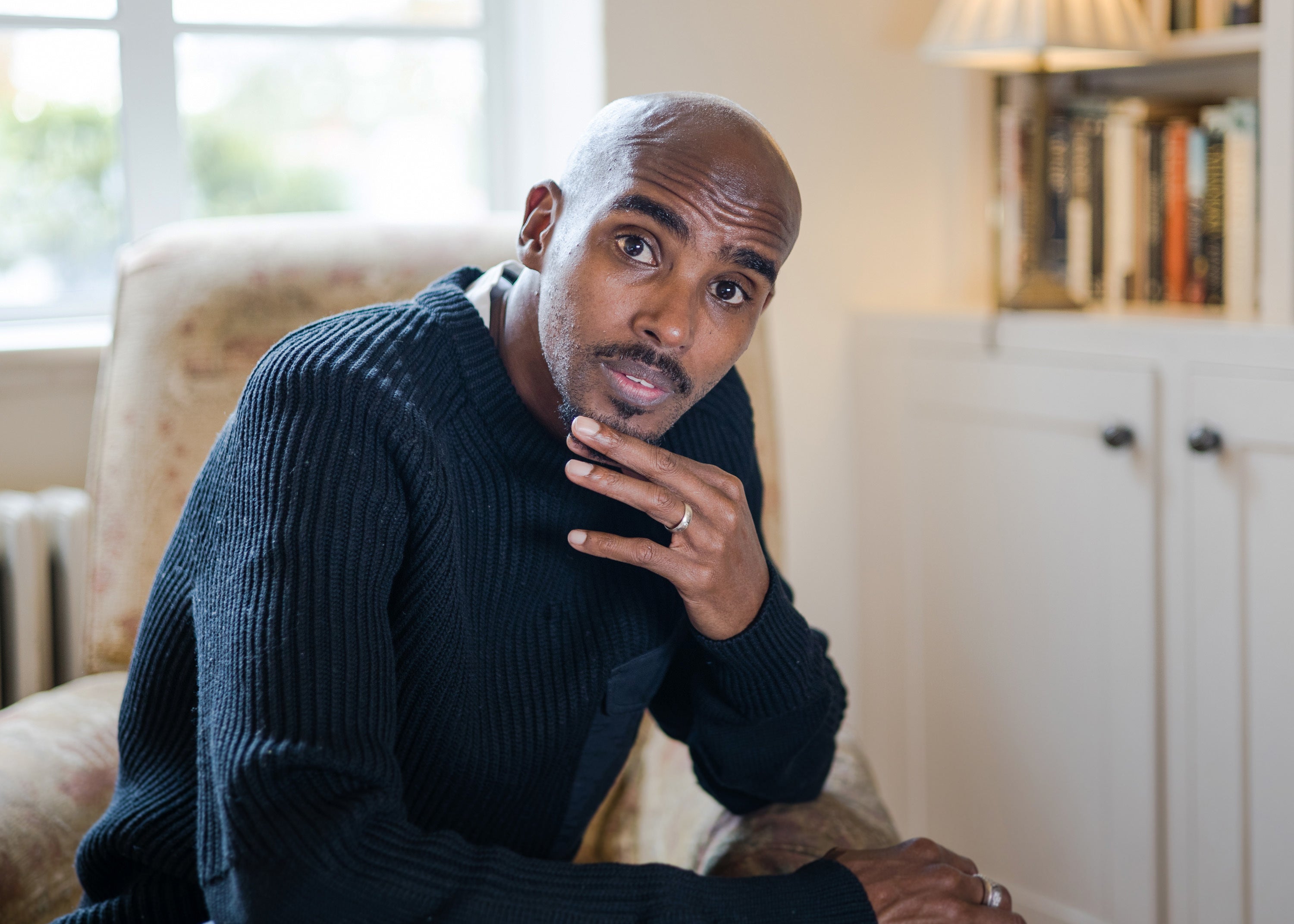Sir Mo Farah felt ‘relief’ after reconnecting with his namesake Mohamed Farah
The four-time Olympic gold medallist revealed the truth about his childhood during a BBC documentary.

Your support helps us to tell the story
From reproductive rights to climate change to Big Tech, The Independent is on the ground when the story is developing. Whether it's investigating the financials of Elon Musk's pro-Trump PAC or producing our latest documentary, 'The A Word', which shines a light on the American women fighting for reproductive rights, we know how important it is to parse out the facts from the messaging.
At such a critical moment in US history, we need reporters on the ground. Your donation allows us to keep sending journalists to speak to both sides of the story.
The Independent is trusted by Americans across the entire political spectrum. And unlike many other quality news outlets, we choose not to lock Americans out of our reporting and analysis with paywalls. We believe quality journalism should be available to everyone, paid for by those who can afford it.
Your support makes all the difference.Sir Mo Farah, who came to the UK illegally under another child’s name, said it felt like something had been “lifted” off his shoulders after speaking to his namesake Mohamed Farah.
The 39-year-old, who was the first British track and field athlete to win four Olympic gold medals, revealed the true story about his childhood in BBC documentary The Real Mo Farah.
He was brought to the UK with a woman and her children under the pretence she would be taking him to stay with a relative, but in fact he was forced to look after the children and do chores around the flat in Hounslow in London.
After disclosing the truth to his school, Sir Mo went to live with the aunt of the real Mohamed Farah, Kinsi, who had been told he was in the UK because all his family had died.
She said: “I tried to find out what is going on with you. The lady, she always make you do the housework, to have the kids, give them their milk, to change their nappy and all these things.
“What I know is she didn’t bring you as a human being, to help you, no. If I tell you the truth, this is not your fault. Your name is a gift to you, our gift to you.”
Kinsi revealed she had got back in contact with her nephew Mr Farah and the pair video called him during the documentary to Sir Mo’s surprise.
Speaking on the phone, Sir Mo said: “I can’t believe that I’m speaking to you. I carry your name and for many, many years, I carry that with me and I’m proud you know what I have achieved.
“But as a person I always wonder where’s Mohamed, is he okay, what would life have been like for him?
“I think about it all the time and in person I just wanted to get in touch and to see how you’re doing.”
Mr Farah said he wasn’t married or had any children just yet but had seen Sir Mo running on the TV and was an Arsenal football fan.
When Sir Mo asked if he is allowed to come to the UK, Mr Farah, whose country was not disclosed, said: “I don’t think so. I would love to come to the UK. I would personally like to meet you.”
Sir Mo added: “I will try my best to make that happen. I just wanna say one thing to you, thank you so much, I use your name.
“I came here as a child and I just wanna say thank you and it’s been hard, difficult.”
Mr Farah said: “It’s okay, you’re still my brother.”
Later in the documentary, Sir Mo said it felt “amazing” and it was a “relief” to speak to his namesake.
“I didn’t get the answer that I was looking for, why was I brought over here?
“I still don’t know, but most importantly for me today, the answer I got, that relief from Mohamed saying, you’re still my brother and for me, I couldn’t ask for a better thing.
“I feel like something’s been lifted off of my shoulders. But that’s just me. I don’t know how everyone’s gonna see it,” he said.
Sir Mo, who was born in Somaliland, was sent alongside his brother to live with their uncle in Djibouti after their father died.
He said: “The hardest thing admitting is that someone from my family may have been involved in trafficking me.”
In the documentary, Sir Mo visits his real mother Aisha and brothers who live in Somaliland, after they re-discovered each other 20 years ago.
She said: “Never in my life did I think I would see you or your children alive.
“We were living in a place with nothing, no cattle, and destroyed land. We all thought we were dying.
“I sent you away because of the war. I sent you off to your uncle in Djibouti so you could have something.
“I lost contact with you. We didn’t have phones, roads or anything. There was nothing here. The land was devastated. I left you both with your uncle.”
The Real Mo Farah will air at 6am on BBC iPlayer and 9pm on BBC One on July 13.